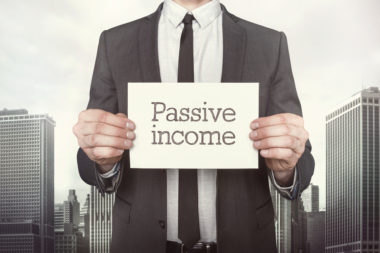Picking between a 401(k) plan and a pension? They are quite different in the ways that they operate, and they each offer unique benefits and risks to you and your employer.
Pension plans have become increasingly rare, and are hardly seen outside of government employers anymore, but they’re still a valid option for retirement income. You’re more likely to have a 401(k), but it’s not the same thing as a defined benefit plan like the pension. In this article, we’ll cover the many differences between these plans, how they work, and which you should choose.
Table of Contents
The Main Difference: Defined Benefit vs Defined Contribution
The main difference between a 401(k) plan and a pension is the way they are classified. Defined benefit plans and defined contribution plans offer different perks and drawbacks. We’ll cover each of them next.
Pensions are Defined Benefit Plans
Pension plans are called defined benefit plans because they offer a guaranteed lifetime benefit in the form of monthly income. In other words, a pension is designed to pay a consistent amount to recipients, similar to receiving a regular paycheck each month. The exact details vary plan to plan, and generally the amount you qualify for depends on things like years with the employer, your salary prior to retirement, etc.
401(k)s are Defined Contribution Plans
Alternatively, 401(k) plans are a type of defined contribution plan which allow you to choose your own investments, but they don’t guarantee minimum or maximum benefits. The emphasis instead is put on how employer and employee collaborate to fund the plan; when it comes time to draw from the fund, you can generally take as much or as little as you wish each month. Depending on your plan, you can choose to allocate your 401(k) funds into the investment choices available to you including stocks, bonds, ETFs, and mutual funds.
How They are Financed
Another distinct difference between a 401(k) plan and a pension is how they are financed.
Pension Plan
Pension plans are mostly funded by your employer, but you have the ability to make contributions also. You just won’t have control over the way these funds are invested like you would with a 401(k) plan.
With a pension, your employer will likely use a formula to determine the amount you’ll receive monthly in retirement. The formula usually consists of your age, the number of years you’ve spent working for the company, and your compensation during employment.
401(k)
Unlike pensions, you will be the main contributor to your 401(k) account through pre-tax deductions from your regular income. Many employers will offer a matching contribution up to a certain percentage of your income, and will make that contribution to your account whenever you make your personal contributions. This is a great way to grow your account without having to fund it alone.
How They Are Taxed
Taxes are inevitable, even in retirement. Next, we’ll cover how and when each retirement account is taxed.
Pension Plan
Contributions to your pension plan are usually pre-tax. Your taxes will usually come out at the time you start drawing your pension, so plan ahead and be ready to factor taxes into your retirement income. Generally, the entire pension payment will be subject to taxes at your regular income rate depending on your tax bracket. There are a few rare exceptions to this rule including:
- After tax contributions will be partially taxable.
- Early payments will include an additional 10 percent tax.
401(k)
Traditional 401(k) payments will be taxed at your regular income rate, but Roth 401(k)s are taxed at the time contributions are made to the account.
Who Controls the Accounts and Investment Decisions
Another major difference between a 401(k) plan and a pension is who controls the account and investment decisions.
401(k)
With a 401(k) retirement plan, you control the account and investment decisions. This can be beneficial to businesses as it puts the responsibility in the employees hands. But it can put the risk in your hands too.
Pension Plan
With a pension, the company carries much more liability than they would with a 401(k) plan. They have control over the account and investment decisions and you only receive the payment.
Risks of 401(k) Plans and Pensions
The different retirement plans pose unique risks to you and to your employer. This is one reason you don’t see pension plans offered as commonly as 401(k)s.
401(k) Risks
The risk of the 401(k) retirement plan is that there is no guaranteed retirement payment. As mentioned above, this type of account and its investment decisions are on you and not your employer. If your 401(k) investments perform poorly, you could lose all of your retirement savings and your employer has no obligation to pay you any income when you retire.
Pension Plan Risks
Pension plans have dropped in popularity because they present more risks to the company than 401(k) plans do. Also, as an employee, you risk losing this benefit if you ever change jobs. Pension plans are beneficial to people who plan to work for the same company for most of their career, which has quite uncommon. Because pensions are generally invested in mutual funds or across the stock market, they are still vulnerable to changing economic conditions and may not appreciate as expected. This can create serious challenges for employers struggling to meet their financial obligations to employees — another reason defined benefit plans like pensions have become less common compared to defined contribution plans like 401(k) accounts.
Which is More Popular: 401(k) or Pension Plans?
Pensions are phasing out of benefit plans because they require a long-term commitment from the company on top of more responsibility and risk. They are also too expensive for a small employer to even consider if they wanted to, so you’re more likely to find a 401(k) in your benefits package.
Pension Plan vs 401(k): Which is Better?
Pension plans look attractive because they are (at least in theory) guaranteed lifetime retirement income. They often perform better on returns that 401(k)s too, depending on the market. However, it’s unlikely that your employer will even offer this option, unless you work for a federal or state organization. Plus, the underlying investments are still subject to market forces, and it is not uncommon for employers to struggle to meet their obligations, instead asking beneficiaries to take their payout as a reduced lump-sum as opposed to a regular payment as intended.
While pension plans might look attractive to you, keep in mind that you can’t move them if you change jobs. If you ever plan to work for a different company, which most people do, a 401(k) will be better for you because the account is yours, not your employer’s. However, don’t miss out on a pension if you have the option, you can always set up a 401(k) retirement savings account as an additional asset.
Image Source: https://depositphotos.com/





